
1.Mukhadhushika Herbal Facial.
2.Klanka Herbal Facial
3.Varnya herbal facial

1.Mukhadhushika Herbal Facial.
2.Klanka Herbal Facial
3.Varnya herbal facial

According to Ayurveda a healthy digestive system is crucial for maintaining balance in the body and mind, preventing disease, and promoting longevity. This blog explores how Ayurveda views gut health and provides practical tips for maintaining a strong digestive system.
The Role of Agni: The Digestive Fire
Agni responsible for digesting food, absorbing nutrients, and eliminating waste. A balanced Agni leads to strong digestion, vibrant energy, and good health. A weak or imbalanced Agni can result in poor digestion, toxin accumulation (known as Ama), and various health issues
Doshas and Digestive Health
In Ayurveda, the three doshas—Vata, Pitta, and Kapha—are the fundamental energies that govern the body. Each dosha influences digestion differently:
Vata Dosha: Linked with movement and flow, an imbalanced Vata can cause gas, bloating, and constipation. Vata types benefit from warm, moist, and grounding foods.
Pitta Dosha: Associated with heat and transformation, an excess of Pitta can lead to acidity, ulcers, and inflammation. Cooling, mildly spiced foods help balance Pitta.
Kapha Dosha: Related to stability and structure, an imbalanced Kapha can slow down digestion, leading to heaviness and congestion. Light, warm, and stimulating foods support Kapha balance.
Understanding your dominant dosha can help tailor your diet and lifestyle to support digestive health.
Signs of a Healthy Gut in Ayurveda

A healthy digestive system in Ayurveda is characterized by:
Regular and comfortable bowel movements: Indicative of good digestion and elimination.
Absence of bloating, gas, and heaviness: Sign of balanced Agni.
Steady energy levels throughout the day: Reflecting efficient digestion and nutrient absorption.
Clear and radiant skin: A result of reduced toxin buildup and proper elimination.
Ayurvedic Tips for Maintaining Gut Health

Eat According to Your Dosha
Tailor your diet to your dosha to keep Agni balanced. For example, Vata types should favor warm, oily foods, while Pitta types should opt for cooling, less spicy options.
Incorporate Digestive Spices
Spices like ginger, cumin, fennel, and turmeric are essential in Ayurveda for supporting digestion. These spices help ignite Agni, reduce gas, and improve nutrient absorption.
Follow a Consistent Eating Schedule
Ayurveda emphasizes the importance of eating at regular intervals to maintain digestive rhythm. Avoid skipping meals or eating late at night, as this can disrupt Agni.
Practice Mindful Eating
Eating mindfully and in a calm environment helps your body focus on digestion. Chew your food thoroughly and avoid distractions like television or phones during meals.
Stay Hydrated with Warm Water
Drinking warm water throughout the day supports digestion and helps flush out toxins. Avoid cold drinks, especially during meals, as they can dampen Agni.
Exercise Regularly
Regular physical activity, such as yoga or walking, helps stimulate digestion and supports overall gut health. However, avoid exercising immediately after meals.
Detoxify with Ayurvedic Cleansing Practices
Periodic detoxification, such as fasting or Panchakarma (Ayurvedic cleansing therapies), can help remove accumulated toxins (Ama) and reset your digestive system.
Manage Stress
Stress can disrupt digestion, leading to imbalances in Agni. Practices like meditation, pranayama (breathing exercises), and yoga help manage stress and support gut health.
Include Probiotic and Fermented Foods
Ayurveda acknowledges the importance of a healthy gut microbiome. Including naturally fermented foods can support this:
Yogurt: Choose homemade or probiotic-rich yogurt. Consume it during the day, never at night, and preferably on its own or with a small amount of honey or spices like cumin.
Buttermilk (Takra): An Ayurvedic digestive drink made from diluted yogurt with added spices. It’s particularly good for digestion and balancing Pitta and Kapha doshas
Pickles: Opt for naturally fermented pickles in small quantities to aid digestion.
Avoid Incompatible Food Combinations
Certain food combinations can be difficult to digest and should be avoided:
Milk with Sour Fruits: This combination can lead to indigestion and toxin formation.
Milk with Fish: Avoid mixing these as it can disrupt Agni.Fruit with Meals: Fruits should be eaten separately as they digest quickly compared to other foods
Conclusion
Ayurveda offers a holistic approach to gut health, emphasizing the importance of maintaining a balanced digestive fire, or Agni. By aligning your diet, lifestyle, and daily habits with Ayurvedic principles, you can support your digestive system and enhance your overall well-being. Remember that Ayurveda is highly individualized, so it’s beneficial to consult with an Ayurvedic practitioner to create a plan tailored to your unique constitution and health needs.

Leech therapy, or Jalaukavacharana is a fascinating Ayurvedic treatment that has been used for centuries to help with various health issues. Though it may sound unusual, leech therapy has proven to be effective for many ailments and is making a comeback in both traditional and modern medicine. In this blog post, we will explore what leech therapy is, how it works, its benefits, and what to expect during a session.

Leech therapy involves using live leeches to draw a small amount of blood from a specific area of the body. This practice is based on the principle of bloodletting, which aims to balance the body’s energies, known as doshas, and remove toxins. In Ayurveda, balanced doshas are essential for maintaining good health, and leech therapy is particularly useful in managing imbalances of the Pitta dosha, which is associated with heat and inflammation.
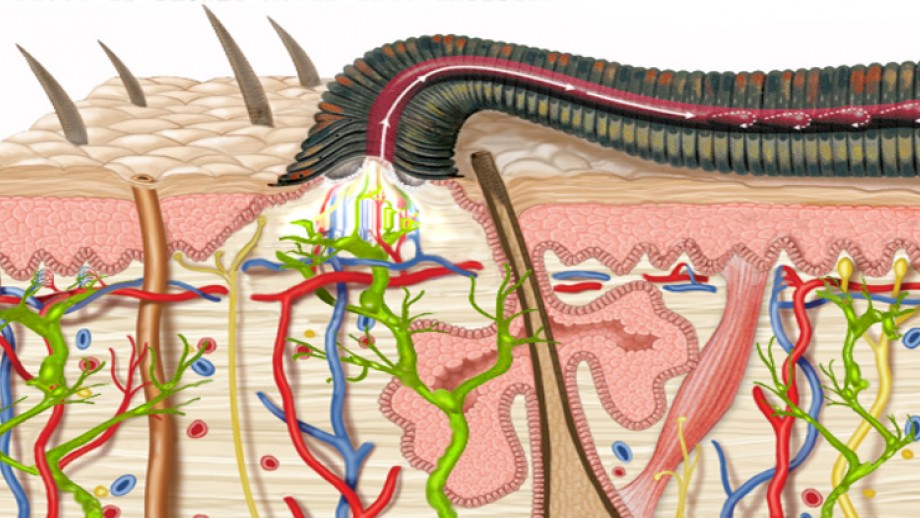
Leeches have special saliva that contains substances beneficial to the human body. When leeches bite, their saliva releases these substances into the bloodstream, which can:
Reduce Pain: The saliva has natural pain-relieving properties.
Prevent Blood Clotting: An enzyme called hirudin in the saliva keeps the blood flowing smoothly.
Reduce Swelling: Anti-inflammatory properties help decrease swelling and promote healing.
Fight Infections: The saliva contains antibacterial compounds that help prevent infections.
Leech therapy is known to offer a variety of health benefits. Some of the common conditions it can help with include:
1. Skin Conditions
Leech therapy can be effective in treating skin problems like psoriasis, eczema, and acne by reducing inflammation and promoting better blood flow to the skin.
2. Pain Relief
For those suffering from arthritis or joint pain, leech therapy can provide relief by decreasing inflammation and improving joint mobility.
3. Circulatory Disorders
Leech therapy improves blood circulation and can be beneficial for conditions such as varicose veins, hypertension, and cardiovascular problems.
4. Wound Healing
Leech therapy is also used to help heal non-healing wounds, diabetic ulcers, and surgical sites by improving blood supply and tissue regeneration.
5. Anti-Aging and Cosmetic Benefits
Leech therapy is gaining popularity in the cosmetic industry for its anti-aging benefits. It helps rejuvenate the skin, reduce wrinkles, and promote a healthy complexion by enhancing blood circulation and detoxification.
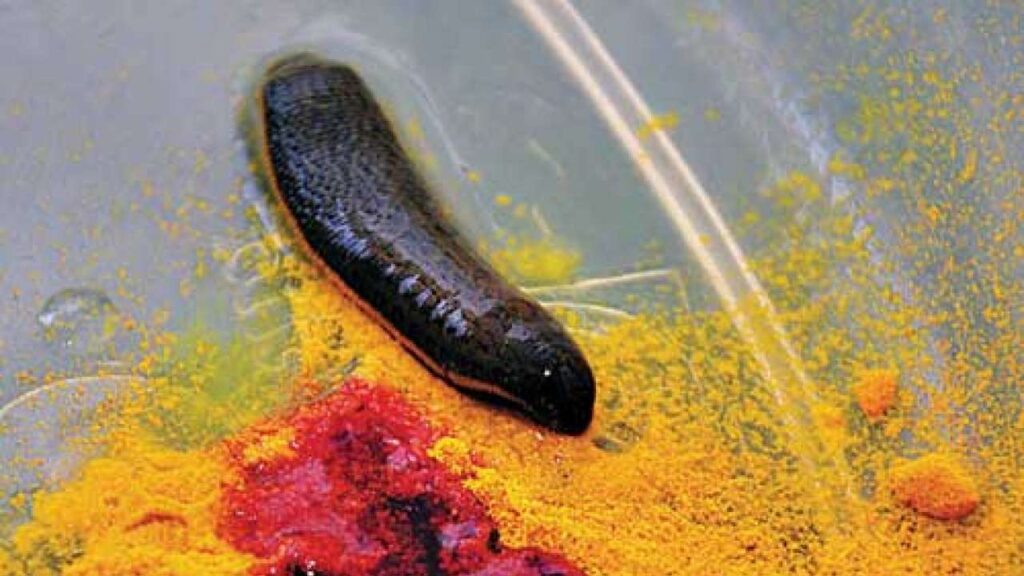
If you decide to try leech therapy, here’s what you can expect:
Initial Consultation
Before the session, a practitioner will assess your health and determine if leech therapy is suitable for your condition. This includes evaluating your dosha balance and discussing your medical history.
The Procedure
Preparation: The area where the leeches will be applied is cleaned and prepared. Sometimes, a mild sugar solution is used to attract the leeches to the skin.
Application of Leeches: The leeches are placed on the targeted area and allowed to attach. The process is usually painless because of the anesthetic properties in their saliva.
Bloodletting: Leeches will draw blood for about 20 to 60 minutes, during which they release their saliva’s beneficial compounds into your bloodstream.
Removal and Aftercare: After the session, the leeches either detach naturally or are gently removed. The area is then cleaned and bandaged. Minor bleeding might continue for a short period, which is normal.
Safety Precautions
While leech therapy is generally safe, it should always be performed by a trained and experienced practitioner in a clean environment. Here are some things to keep in mind:
Consult with Professionals: Always seek treatment from licensed Ayurvedic practitioners.
Check for Allergies: Inform the practitioner of any allergies or medical conditions you have before the procedure.
Avoid Self-Treatment: Do not attempt leech therapy at home; it requires proper knowledge and expertise.
Leech therapy in Ayurveda is an ancient practice that continues to offer valuable health benefits today. Whether you are looking to improve your skin health, manage pain, or enhance circulation, leech therapy can be a natural and effective solution. As with any medical treatment, it is essential to consult with qualified practitioners to ensure it is the right option for you.
CONTACT US 6364667542

In our fast-paced modern world, the quest for a long and healthy life often leads us to complex solutions and expensive treatments. However, Ayurveda, the ancient Indian system of medicine, offers timeless wisdom that is simple, natural, and highly effective. By aligning our lives with the principles of Ayurveda, we can achieve a harmonious balance of mind, body, and spirit, paving the way for longevity and vitality. Here are some Ayurvedic secrets to a long and healthy life.
Understand Your Dosha
Ayurveda identifies three primary doshas: Vata, Pitta, and Kapha. Each person has a unique constitution, or Prakriti, which is a combination of these doshas. Knowing your dosha helps tailor your diet, lifestyle, and habits to maintain balance and health.
Vata: Linked to air and space, Vata governs movement and communication. Imbalances can cause anxiety and digestive issues.
Pitta: Associated with fire and water, Pitta controls metabolism and transformation. Imbalances may lead to inflammation and anger.
Kapha: Connected to earth and water, Kapha is responsible for structure and stability. Imbalances can result in lethargy and weight gain.
Follow a Balanced Diet (Ahara)

In Ayurveda, food is considered medicine. A balanced diet tailored to your dosha (Vata, Pitta, Kapha) is essential for maintaining health.
Vata types should favor warm, moist, and grounding foods like cooked vegetables, grains, and healthy fats.
Pitta types benefit from cooling, hydrating, and mildly spiced foods like fresh fruits, vegetables, and whole grains.
Kapha types thrive on light, dry, and warming foods such as legumes, spices, and leafy greens.
Eating fresh, seasonal, and locally sourced foods while avoiding processed and overly spicy foods can help maintain your dosha balance.
Daily Routine (Dinacharya)

Establishing a consistent daily routine aligns your body with nature’s rhythms, promoting health and longevity. Here are some key practices:
Wake Up Early: Rise before sunrise to absorb the morning’s serene energy.
Oral Hygiene: Clean your tongue and teeth to remove toxins and stimulate digestion.
Abhyanga (Self-Massage): A daily oil massage nourishes the skin, improves circulation, and calms the mind.
Exercise: Engage in moderate exercise like yoga or brisk walking to keep your body active and flexible.
Meditation and Pranayama: Practice mindfulness and breath control to reduce stress and enhance mental clarity.
Seasonal Regimen (Ritucharya)

Adapting your lifestyle to the changing seasons is crucial in Ayurveda. Each season affects the balance of doshas differently, so it’s important to modify your diet and habits accordingly.
Spring: Detoxify with light, bitter, and astringent foods to balance Kapha.
Summer: Stay cool with hydrating, sweet, and cooling foods to pacify Pitta.
Autumn: Ground yourself with warm, moist, and slightly oily foods to balance Vata.
Winter: Nourish with hearty, warming, and slightly spicy foods to maintain balance during the cold months.
Herbal Support

Ayurveda emphasizes the use of natural herbs to support overall health and longevity. Some key herbs include:
Ashwagandha: Known for its rejuvenating properties, it helps reduce stress and improve vitality.
Turmeric: A powerful anti-inflammatory and antioxidant, it supports overall health.
Triphala: A combination of three fruits, it aids digestion and detoxification.
Tulsi (Holy Basil): Enhances immunity and respiratory health.
Mind-Body Connection

Maintaining a strong mind-body connection is vital for a long and healthy life. Practice mindfulness, meditation, and yoga to foster mental clarity, emotional stability, and spiritual growth. These practices help reduce stress, improve concentration, and promote inner peace.
Sleep and Rest
Adequate rest and quality sleep are essential for rejuvenation. Ayurveda recommends:
Regular Sleep Schedule: Go to bed and wake up at the same time each day.
Wind Down: Create a calming pre-sleep routine, avoiding screens and stimulants.
Sleep Environment: Ensure your bedroom is cool, dark, and quiet to promote restful sleep.
Detoxification (Panchakarma)
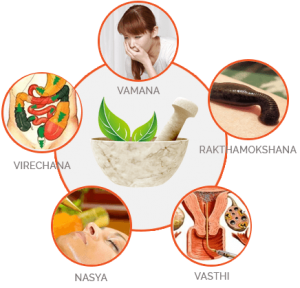
Periodic detoxification helps remove accumulated toxins (ama) from the body. Panchakarma, a set of five cleansing and rejuvenating therapies, can be performed under the guidance of an Ayurvedic practitioner to restore balance and vitality.
Conclusion
Ayurveda offers a holistic approach to achieving a long and healthy life by emphasizing balance, harmony, and natural living. By incorporating these Ayurvedic principles into your daily routine, you can enhance your overall well-being and enjoy a life of longevity and vitality. Embrace the wisdom of Ayurveda and embark on a journey towards a healthier, happier you.
CONTACT US – 6364667542
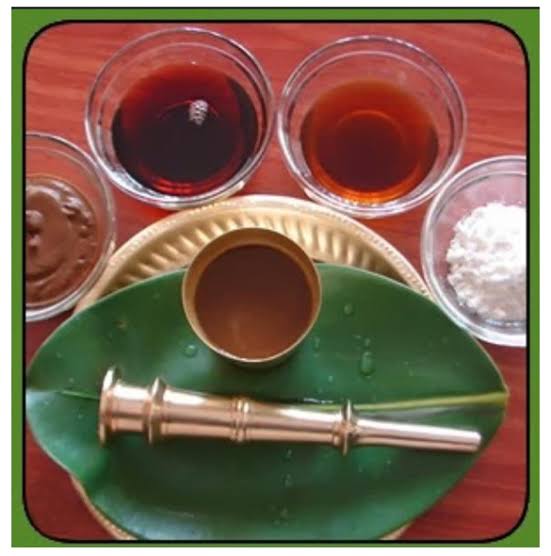
Overview
Basti therapy is one of the five treatments in Panchakarma therapy, designed to cleanse the body of toxins and restore health and wellness. This procedure involves the introduction of medicated ghee, herbal oils, or other medicinal fluids into the rectum for direct delivery to the colon.
Key Points

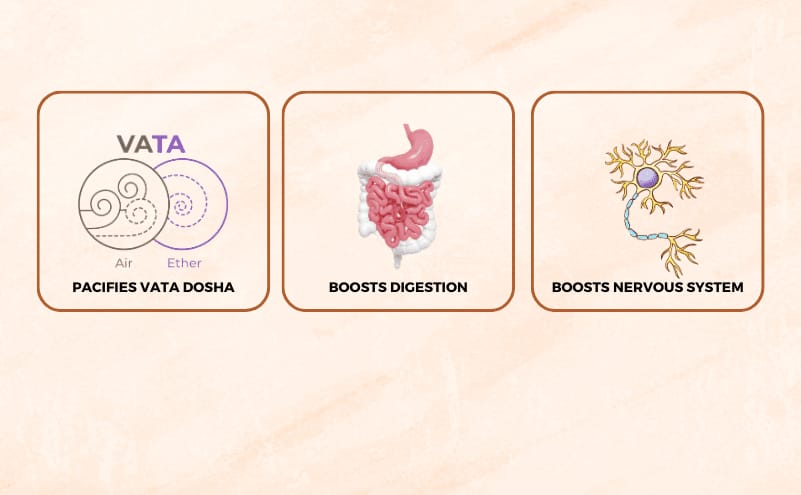
Visit Kottakkal Arya Vaidyasala in Madiwala, Bangalore
If you are experiencing issues with your nervous system, digestion, or colon, consider visiting Kottakkal Arya Vaidyasala. We offer safe and effective Basti chikitsa administered by trained, qualified, and experienced professionals.
Conclusion
Basti treatment is a vital component of Ayurvedic Panchakarma therapy. It not only detoxifies the body but also strengthens the immune and nervous systems, offering numerous health benefits.

Lifestyle diseases, also known as non-communicable diseases (NCDs), have become a major health concern globally. These diseases, primarily caused by unhealthy lifestyle choices, include conditions such as diabetes, hypertension, obesity, cardiovascular diseases, and certain types of cancers. Ayurveda, the ancient Indian system of medicine, offers holistic and natural solutions to prevent and manage these diseases.
Lifestyle diseases are primarily caused by:
These factors lead to metabolic imbalances, inflammation, and impaired bodily functions, resulting in chronic health conditions.

Ayurveda emphasizes a balanced lifestyle and individualized treatment. The key principles include:


Ayurveda offers a comprehensive approach to managing and preventing lifestyle diseases through natural and holistic means. By adopting Ayurvedic principles and practices, individuals can achieve a balanced and healthy life. Integrating these practices into daily life not only helps in managing existing conditions but also in preventing the onset of new diseases, promoting longevity and well-being.

Ayurveda, the traditional system of medicine from India, dates back over 5,000 years and focuses on maintaining balance in the body, mind, and spirit. It emphasizes natural therapies, diet, lifestyle changes, and herbal remedies to promote overall well-being. Stress management is an essential aspect of Ayurveda, as chronic stress can lead to imbalances and health issues.

In Ayurveda, stress is viewed as a disturbance in the mind-body balance. It often stems from an imbalance in the doshas (Vata, Pitta, and Kapha), which are the fundamental energies governing our physiological and psychological functions.


Ayurveda offers a holistic approach to stress management, emphasizing the importance of balance in diet, lifestyle, and mental health practices. By understanding and addressing the unique imbalances in the doshas, individuals can effectively manage stress and enhance their overall well-being. Incorporating Ayurvedic principles into daily life can lead to a more harmonious and stress-free existence.

Harnessing Ayurveda for Women’s Wellness: A Holistic Approach
In the realm of holistic health practices, Ayurveda stands out as a beacon of ancient wisdom, offering a comprehensive approach to wellness that encompasses mind, body, and spirit. When it comes to women’s health, Ayurveda provides a rich tapestry of knowledge and practices that address the unique needs and challenges faced by women throughout their lives.
Ayurveda, which translates to “the science of life,” is deeply rooted in the understanding of the body’s innate intelligence and its interconnectedness with the natural world. Central to Ayurvedic philosophy is the concept of balance, where optimal health is achieved through harmony between the body’s doshas – Vata, Pitta, and Kapha.
For women, maintaining this balance is particularly crucial as they navigate through various stages of life, from menstruation to menopause and beyond. Ayurveda offers invaluable insights into promoting women’s wellness at every phase, emphasizing preventive measures, dietary guidelines, herbal remedies, and lifestyle practices.

Menstrual Health: Ayurveda recognizes menstruation as a natural cleansing process and provides guidance on how to support this vital function without disruption. Practices such as gentle yoga, meditation, and consuming warming spices like ginger and cinnamon can help alleviate discomfort and balance menstrual cycles.
Fertility and Pregnancy: Ayurveda offers a holistic approach to fertility and pregnancy, focusing on preparing the body, mind, and spirit for conception and childbirth. Prenatal care in Ayurveda involves nourishing foods, herbal supplements, and self-care practices tailored to support the mother and the developing fetus.

Menopausal Transition: Menopause is a significant phase in a woman’s life marked by hormonal changes and accompanying symptoms. Ayurveda views menopause as a natural transition and offers strategies to ease symptoms such as hot flashes, mood swings, and insomnia through dietary modifications, herbal remedies, and stress-reducing techniques.
Hormonal Balance: Hormonal imbalances can manifest in various ways, affecting everything from mood and energy levels to reproductive health. Ayurveda seeks to restore hormonal balance by identifying the root cause of imbalance and addressing it through personalized treatments that may include herbal formulations, dietary adjustments, and lifestyle modifications.
Emotional Wellbeing: Emotional health is intricately linked to physical wellness in Ayurveda, with practices such as meditation, pranayama (breathwork), and self-reflection playing a central role in maintaining mental equilibrium. Cultivating emotional resilience and nurturing supportive relationships are emphasized to promote overall wellbeing.

Self-Care Rituals: Ayurveda encourages the incorporation of daily self-care rituals, known as dinacharya, to nurture the body and mind. These rituals may include oil massage (abhyanga), tongue scraping, and gentle exercise, all of which help to detoxify the body, enhance circulation, and promote relaxation.
In essence, Ayurveda offers a holistic framework for women’s wellness that honors the innate wisdom of the female body and its inherent connection to nature. By embracing Ayurvedic principles and practices, women can cultivate balance, vitality, and resilience throughout their lives, fostering a deep sense of harmony and wellbeing in body, mind, and spirit.


Unlocking the Golden Benefits of Swarnaprashana: A Time-Honored Ayurvedic Tradition
In the realm of holistic wellness, ancient practices often hold timeless wisdom. Swarnaprashana, an age-old tradition rooted in Ayurveda, stands as a shining example of such wisdom, offering a golden pathway to nurturing the health of our little ones.
Understanding Swarnaprashana:
Derived from Sanskrit, “Swarna” translates to gold and “Prashana” means consuming. Swarnaprashana, therefore, literally means consuming gold. However, it’s not about munching on gold nuggets but rather ingesting gold in a meticulously prepared form, often as a liquid or paste.
The Process:
Swarnaprashana is typically administered to children in the form of a medicated ghee or honey containing gold bhasma (ash). The preparation process involves combining gold bhasma with other Ayurvedic herbs and substances known for their immune-boosting and health-enhancing properties. This concoction is then administered orally to children on specific auspicious days or as per the guidance of an Ayurvedic practitioner.

The Benefits:
Safety and Precautions:
While Swarnaprashana is generally considered safe when administered under the guidance of a qualified Ayurvedic practitioner, it’s essential to exercise caution and ensure the quality and purity of the ingredients used in its preparation. Additionally, it’s advisable to perform a patch test to rule out any allergic reactions before administering it to children.

Conclusion:
In a world inundated with modern medical interventions, Swarnaprashana stands as a beacon of traditional wisdom, offering a natural and holistic approach to pediatric health care. While scientific research on its efficacy is still evolving, the anecdotal evidence and centuries-old practice speak volumes about its potential benefits. As we continue to navigate the complexities of modern living, embracing ancient traditions like Swarnaprashana reminds us of the profound connection between nature, health, and human well-being.

In a world filled with fast food joints, sugary snacks, and tempting treats around every corner, maintaining a healthy diet can sometimes feel like an uphill battle. However, the benefits of prioritizing nutritious foods extend far beyond just physical health; they play a crucial role in our mental well-being and overall quality of life. Let’s delve into why a healthy diet is so important and how it can positively impact various aspects of our lives.
1. Physical Health
At its core, a healthy diet provides our bodies with the essential nutrients, vitamins, and minerals needed to function optimally. By consuming a balanced diet rich in fruits, vegetables, whole grains, lean proteins, and healthy fats, we support our immune system, maintain a healthy weight, and reduce the risk of chronic diseases such as heart disease, diabetes, and certain cancers. Additionally, a diet low in processed foods and added sugars can help prevent conditions like obesity and hypertension, promoting longevity and vitality.
2. Mental Well-being
What we eat doesn’t just affect our physical health—it also has a significant impact on our mental and emotional well-being. Research has shown that certain nutrients, such as omega-3 fatty acids found in fish, folate in leafy greens, and antioxidants in berries, can support brain health and cognitive function. Conversely, diets high in processed foods, saturated fats, and refined sugars have been linked to an increased risk of depression, anxiety, and cognitive decline. By nourishing our bodies with wholesome foods, we can cultivate a positive mood, sharper focus, and enhanced mental clarity.
3. Energy Levels
Ever notice how your energy levels fluctuate throughout the day based on what you eat? That’s because food serves as fuel for our bodies, providing the energy needed to power through daily activities. While sugary snacks and caffeinated beverages may offer a temporary energy boost, they often lead to crashes and fatigue shortly afterward. On the other hand, complex carbohydrates like whole grains and legumes, along with lean proteins and healthy fats, provide sustained energy levels and help stave off feelings of sluggishness. By choosing nutrient-dense foods, we can maintain steady energy throughout the day, improving productivity and overall vitality.
4. Longevity
As the saying goes, “You are what you eat.” Indeed, our dietary choices play a significant role in shaping our long-term health outcomes. Studies have consistently shown that individuals who follow a healthy diet pattern, such as the Mediterranean diet or the DASH (Dietary Approaches to Stop Hypertension) diet, tend to live longer, healthier lives compared to those with poor dietary habits. By prioritizing whole, unprocessed foods and minimizing the intake of harmful additives and preservatives, we can reduce the risk of age-related diseases and increase our chances of enjoying a fulfilling, active lifestyle well into old age.
5. Quality of Life
Ultimately, a healthy diet isn’t just about adding years to our lives—it’s about adding life to our years. By nourishing our bodies with the nutrients they need to thrive, we can experience greater vitality, resilience, and overall well-being. Whether it’s enjoying a leisurely walk in the park, pursuing a hobby, or spending quality time with loved ones, maintaining a healthy diet empowers us to engage fully in life’s joys and adventures. When we prioritize our health and well-being, we unlock the potential to live our best lives and savor each moment to the fullest.

In conclusion, the importance of a healthy diet cannot be overstated. From supporting physical health and mental well-being to enhancing energy levels and longevity, the benefits of nourishing our bodies with nutritious foods are far-reaching and profound. By making mindful choices about what we eat and prioritizing whole, unprocessed foods, we can cultivate a foundation of health and vitality that enables us to thrive in all aspects of life. So let’s savor the goodness of wholesome foods and embrace the transformative power of a healthy diet—one delicious bite at a time.
Welcome to Our Special Diet Clinic, where we tailor nutrition plans to meet your unique needs.